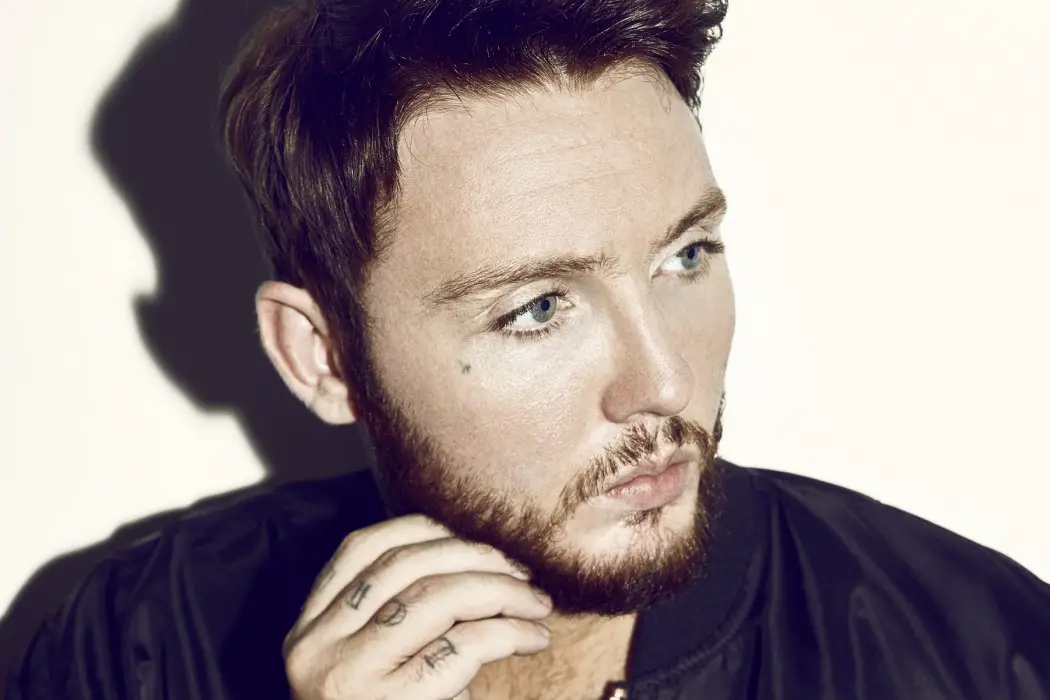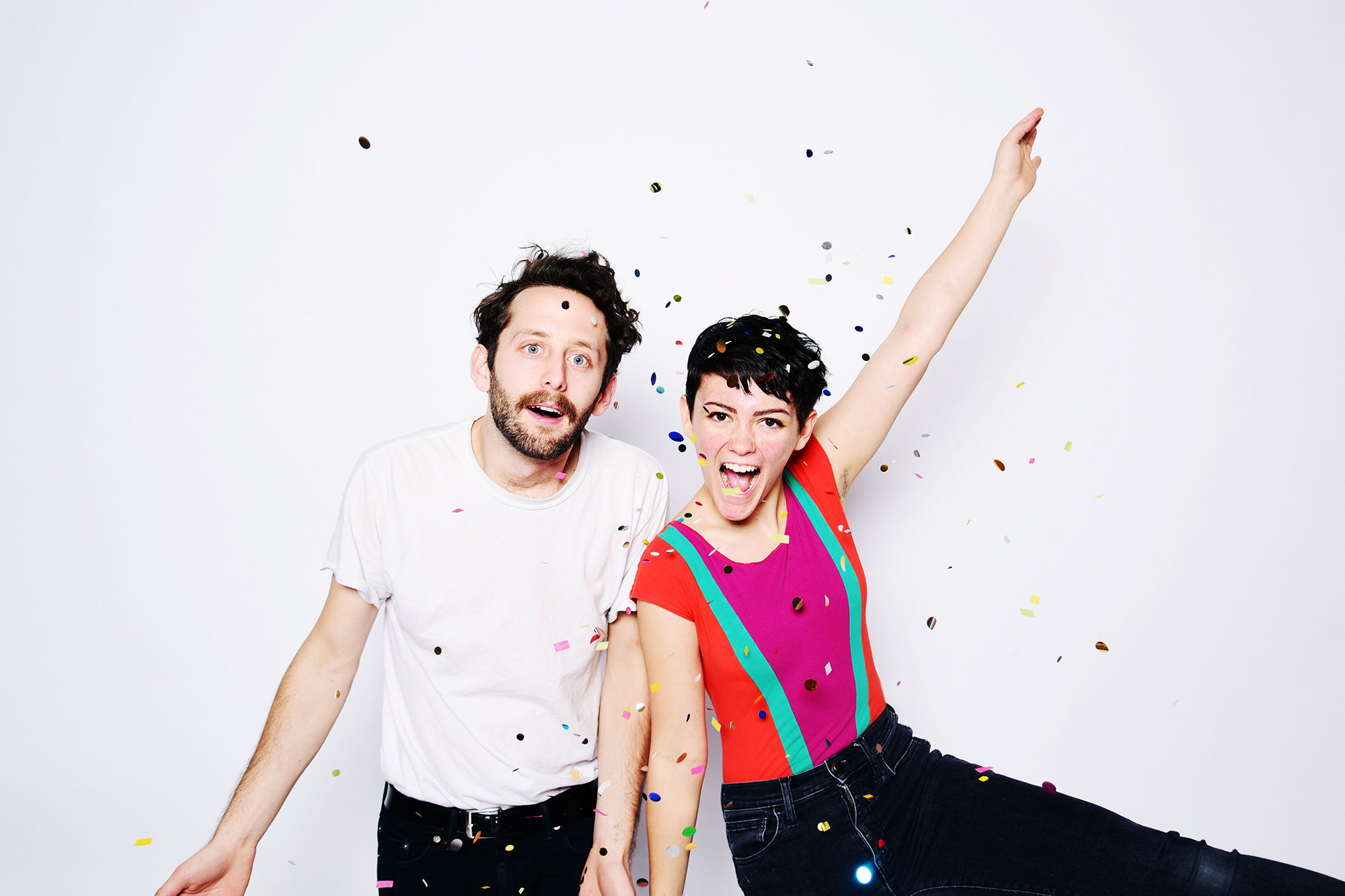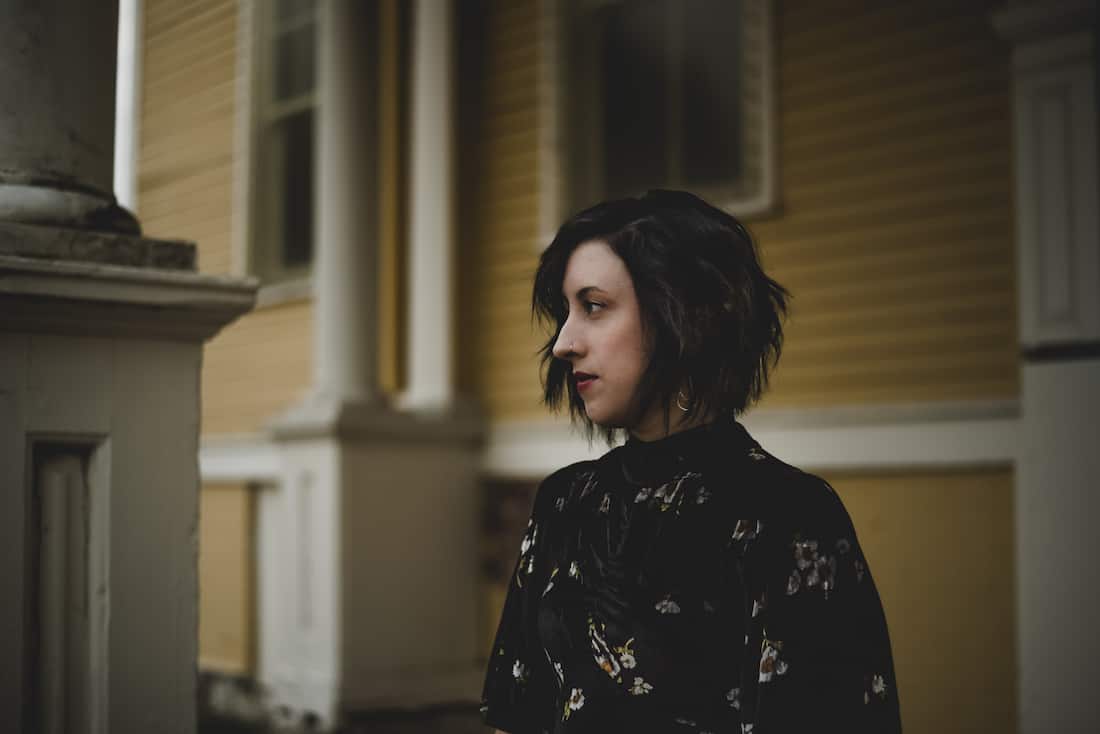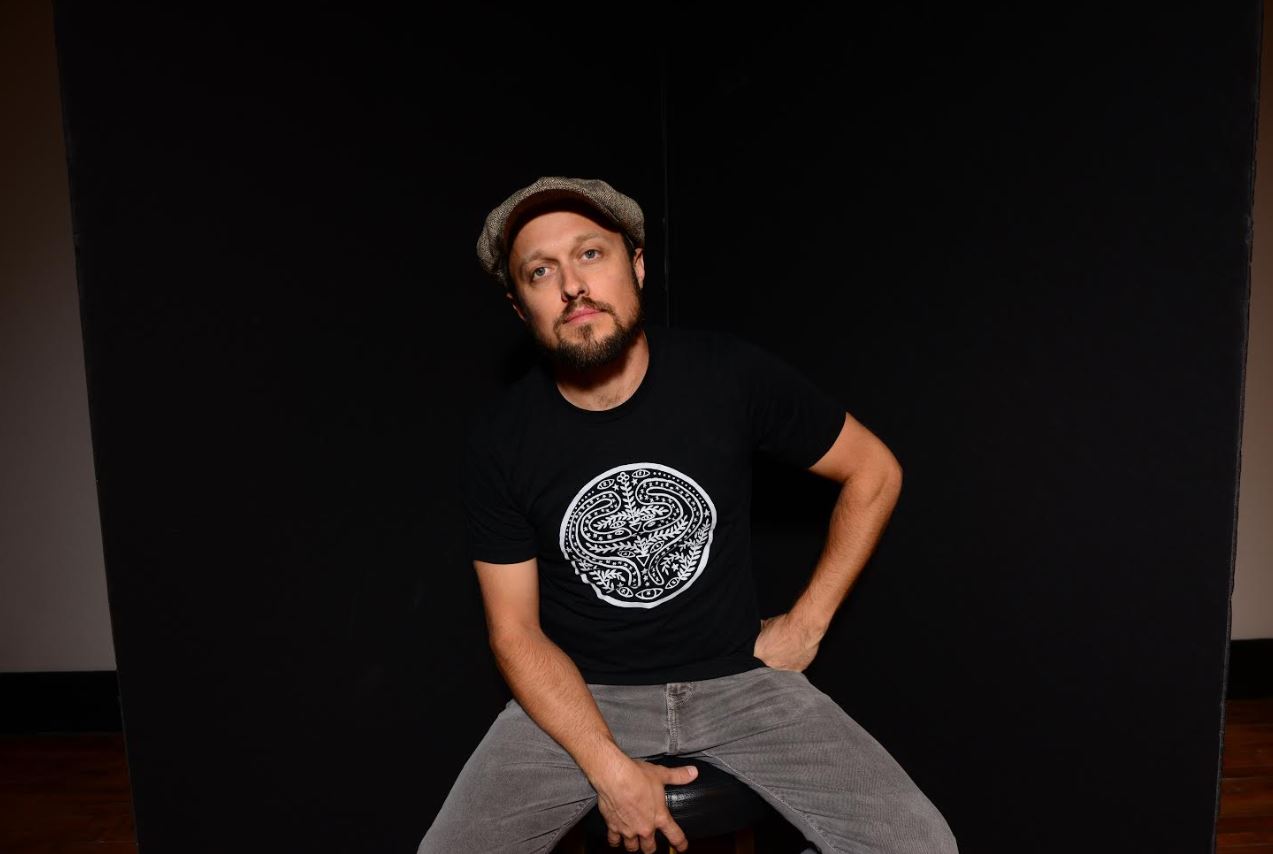Chart-topping British artist James Arthur offers an intimate glimpse into the music, emotions, and struggles that come to life on his new album, Back from the Edge.
•• •• •• ••
James Arthur is a poet, a powerful singer and passionate songwriter with a story to tell. His is a personal tale of recovery and redemption: Of clawing his way back to the top after hitting rock bottom; of proving his self-worth; of not letting go, and never giving up.
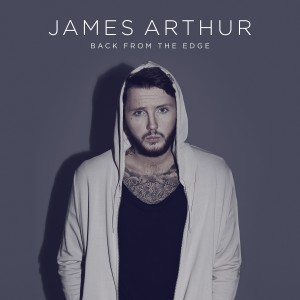
At 29, James Arthur has come full circle. The British artist describes his new album, Back from the Edge (October 2016 via Columbia Records) as a “memoir” of the past two years of his life: After winning The X Factor in 2012 and releasing a self-titled album in 2013, the British artist got caught up in controversy, lost his record deal, and ‘stepped away’ from the spotlight. “I felt a little chewed up and spat out at that time, and like I’d kind of lost my purpose. I was a bit of a joke, nationally,” he reflects.
Arthur’s self-assessment is critical, but he’s not the kind to sugarcoat things – a trait that comes in handy in his music. Back from the Edge is a torrential outpouring of emotion, a hauntingly visceral seventeen-track confessional that finds James Arthur sharing his life on his terms. Poignant introspection mixes with anxiety, insecurity, anger and self-doubt, but even the darkest moments have what Arthur likes to call “a little thread of hope.” Arthur’s steadfast determination to “prove everybody wrong” and persevere against all odds is a constant theme throughout the album, which, as its name suggests, is ultimately about overcoming adversity.
Even the album’s worldwide mega-hit single evokes that uncompromising staying power: The heartachingly bittersweet “Say You Won’t Let Go” has topped iTunes charts in 22 countries and currently sits at #13 on its 27th week on Billboard‘s Hot 100 chart. The twisted irony is that, of all the tracks on Back from the Edge, “Say You Won’t Let Go” is the odd one out: Most of its story came from Arthur’s imagination. “I wanted to write the type of song that guys would want to play for their girlfriends,” he says. Shows you what the people want, doesn’t it?
Hopefully the song can act as a gateway to the rest of the album, but James Arthur is nothing but grateful to be where he is now. “Say You Won’t Let Go” has brought him farther than he could have dreamed: Back From the Edge went straight to #1 in the UK, and Arthur is about to embark on his first North American tour this summer, supporting OneRepublic. “I’ve got my purpose back,” he says, a gleam in his eye. “I’m on the right path, so… I’m happy.”
The path to redemption is long and arduous, but this story has come full circle: James Arthur is Back from the Edge, and he’s not going anywhere.
“Say You Won’t Let Go – James Arthur
A CONVERSATION WITH JAMES ARTHUR
Atwood Magazine: I want to start by talking about your album as a whole. If you had to sum up Back from the Edge in as few words as possible, how would you describe it?
James Arthur: I would definitely say it’s an honest piece of work; there’s a redemption, kind of, thread to it. Musically, I tried to make it as organic as possible, putting a lot of live instruments on it. It’s just honest and open, almost like a memoir, or something, of my last two years – the two years of hell that I went through, and sort of clawed my way back. It’s about overcoming adversity.
How long in the making was this album?
James Arthur: It was two years in the making. The idea of it was conceived shortly after I was dropped by my record label – well, it wasn’t really a concept at that point, actually; it was more just me venting through these songs about how I felt about the whole situation. I felt a little chewed up and spat out at that time, and like I’d kind of lost my purpose – I was a bit of a joke, nationally. I was really venting about that, but as time went on, it sort of evolved into a positive thing. There are a few songs where I’m basically down and out, but I didn’t want to just kind of leave it at that – I wanted to stick a little thread of hope in it, and so I’m hoping it’s kind of acted as a helpful album for anyone who’s going through any kind of issues – mental health issues, whatever it is, drama.
I’m hoping it’s acted as a helpful album for anyone who’s going through any kind of issues.
Back from the Edge feels intensely autobiographical; at one point on the first song you even sing, “But now I'm back with my own story to tell.” Has that always been your writing style?
James Arthur: Yeah, I think so; I think I’ve always been pretty conversational in most of my music. I think what you have to do is make people feel something, really, and I had a story to tell. I didn’t want to be too cryptic with it; I wanted to make it quite direct, and like you said, conversational: Simple and honest.
Thankfully, I think that if I were to name my strongest asset, it would probably be that I’m able to interpret lyrics quite well, so I don’t have to be too metaphorical in order to get that uplifting message across.
Back from the edge
Back from the dead
Back before demons took control of my head
Back to the start
Back to my heart
Back to the boy who would reach for the stars
You refer to your own “demons” in a number of songs – “Back From The Edge,” “Skeletons,” “If Only,” to name a few. What is it about these vices that keeps you coming back to them?
James Arthur: I have an addictive personality; I can get addicted to nasal spray if I let myself. I think throughout my life, I’ve looked outside of myself for validation quite a bit, and struggled to come to terms with myself. Self-medication has been a theme of my life. During the process of making this album, I definitely learned self-discipline and grew up quite a lot, because I wanted to prove everybody wrong. I felt like I had something to prove, and I think I talk about the vices so much just because it’s been a huge part of me, and it’s something that I think a lot of people can relate to. It’s hard – it’s hard to do life without crutches if you’ve got some kind of hard-wired anxiety problem.
In “If Only,” you sing: “Don't worry about the drink and drugs, I am through - If only I believed that was true.” At first I thought Back from the Edge was about overcoming your struggles, but I’m wondering if you were still battling them as your wrote this album.
James Arthur: Yeah, I was definitely battling them. I think my fight with all that ran parallel to writing the album. Basically, I smoked weed every day of my life for about eight years. I got into prescription drugs as well – because of anxiety, basically, I’d have panic attacks and stuff, so I thought that was helping me. Coming off all of that stuff, I realized that it wasn’t helping and it probably was making it worse. Once I realized that, my entire life – all of my brainpower – ran towards not doing it… Just trying to deal with it by myself, and in doing that, I got closer to getting to know my mind.
It’s out with the old, I’ll be new
And don’t worry about the drink and drugs
I am through
If only I believed that was true
We’d be living all the dreams in a house with a view
If only, if only you knew how the voices
of demons could drown out the truth
Now my one place of freedom is sleeping with you
If only, if only you knew

When in your life did you actually feel like you had come “back” from the edge?
James Arthur: I think it’s kind of an open-ended thing, because I would hate for people to think that I’m rehabilitated like some life guru. That’s not really what I want people to take from it; I’m basically saying that I’m just not dying anymore, basically. Also, in my country, I really was written off; the management I’m with now, when they were trying to get me back to where I wanted to be, they’d speak to people like, “We manage James Arthur,” and they’d go, “Oh, cool… cool, good for you. He’s talented, but kind of over.” Especially if you factor in the fact that I was the winner of a talent show, and you never ever see those people come back.
It’s kind of a tongue-in-cheek thing, like back from the dead, and it’s also like, me – without being too dark – not being suicidal anymore, really. I was genuinely in a super rough place. Now, I’m just managing it: I’m up for the fight, I’m up for the battle. That’s what it is: A lot of the songs are just like, I know it’s f*ckin’ hard – I know you’re going through this thing. If I can get up in the morning and talk about myself all day, you can go and get a pint of milk from the shop and do regular things that a lot of people struggle with! I guess I just remembered my purpose: That I don’t need to do it for anybody else; I’ve just got to do it for me. I’m up for the fight, that’s what it is – and trying to get other people up for the battle as well.
I don’t need to do it for anybody else; I’ve just got to do it for me.
Does the album allow you to move on from The X Factor, etc?
James Arthur: Yeah, I think it does. I mean, it’s a weird one: I don’t think I’ve fully worked that one out, because I’m proud to come from there. I think I used the platform effectively, and I get a sense of people not really associating me too much from it. He came from the X Factor, but he was the one that was supposed to go out on Week 5, but he won! The kind of one we root for, but doesn’t ever really get there. That’s what it feels like in my home country, anyway. I don’t know… It’s kind of nice that they recognize me again, because for a couple of years there, I’d put the show on and it was like I didn’t exist. I made history on the show. I got the biggest single there’s ever been – not that those kind of things validate you… But they’d do these montages on the show: Do you want to be the next Leona Lewis, Olly Murs, One Direction, and I was waiting for myself to come on, and it would never happen. Who am I? They want to pretend I don’t exist, even though I’m still a success story. I’m happy they’ll recognize me now, and everyone knows that’s where I came from; I don’t hide from it, it’s a part of who I am.
Two of your most personal songs, I find, are “I am” and “The Truth.” Can we talk about those two songs? “The Truth” is profoundly confessional. You talk about dealing with the spotlight, headlines, and this inner incompletion.
James Arthur: Actually, “The Truth” was the first song that I wrote for the album. It’s the most autobiographical one as well. My favorite line on the whole album is, the comedown’s harder in the headlines. I really like that song – that really is a confessional, I was literally just writing down what was happening and what had happened. I thought it was going to be the single for a long time, but it wasn’t to be.
It was good to be there in the bright lights
But I lost good friends under the spotlight
Imagine if everybody knew your name
But they had nothing to say, nothing nice to say
It was good to be living up the high life
But the comedowns harder in the headlines
Everybody tells you, you should play the game
But there’s only you to play,there’s only you to play
Well I tried
“I Am” is a little simpler lyrically, a sort of dichotomy between self-love and hate.
James Arthur: That was at a time when I was reading a lot of sh*t about myself, and I was getting really twisted about it. I got to the point where I was actually putting my name on the search bar, on Twitter – not even looking at my mentions – the stuff that people actually wrote, like James Arthur’s a dickhead. I would look for it, and I was sort of addicted to it. It was another thing, the same as the panic attacks, that I was like, “How can I not feel like sh*t about this anymore? I’m tired of it,” and I sat down and wrote this song. I was like, think whatever you want. I am whatever you think I am, but to me I’m me, and I need to recognize who I am; that’s all that matters.
I’m a problem, I’m the killer, I’m the cure, I guess
I’m the end, I’m the beginning, the apocalypse
I am something from nothing, I heard ’em say
Rags to the riches, your best mistake
I’m the future, I’m the relic, I’m the “not done yet”
It cannot be fun reading those things.
James Arthur: No, it sucks. It’s horrible; people can be really mean, but I’m 29 now; I can’t go around giving a f*ck too much. I never have any worries that people are going to say I’m sh*t, because I don’t think people can say that: I’m pretty decent at what I do, I’m a good musician and that’s just a fact. But for some reason, it knocks me when people call you an ugly c*nt, or whatever.
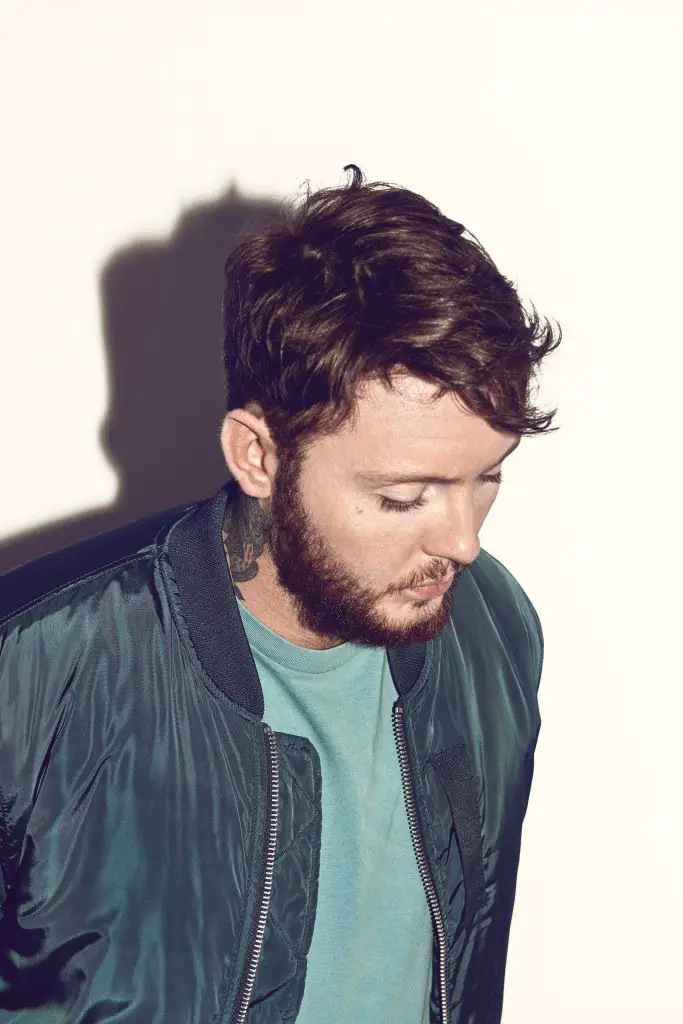
I think what I really love most about the album is its blend of Rock, Blues, Soul and R&B elements in certain songs. Were there any specific sounds you were going for, musically?
James Arthur: The only goal, really, was to make sure it sounded like a band – the right blend of electronic and real instruments. I tried to keep it soulful, but because I had a real concept and a theme with Back From the Edge, I felt like I had more artistic license to be more eclectic in doing different styles. In the future I might do an R&B album, or a straight-up soul album, or a rock album! But with this one, I felt like I could do whatever I wanted, because it was for me and it was like a journal – you know, so I could jot down songs and they could be whatever style I wanted them to be.
I loved the octave vocals in the “Prisoner” chorus and the harmonies in “Sober.”
James Arthur: That’s one of my favorite things to do – making stacks of harmonies; I love doing that. I’m quite proud of “Prisoner.” I left the demo vocals in, because it had a vibe – did it at a studio called Rack Studios, which was big in the ‘60s and ‘70s, and when you’re in there you feel like you’re in the ‘70s, and so I got that vibe when I was doing the song.
We should also discuss your balladry. A lot of your ballads have a particularly personal touch, and I’m curious - when a song credits you and two to three others, how does that work?
James Arthur: Sometimes there’s just an energy in the room! That’s a probably cliché thing to say, but you know, my publishers put another guy in the room, but the idea is always that I go into the session with the idea or the bones of a song. The thing is – if I didn’t – I think they’d probably think if there wasn’t another person in the room, I’d end up with eight-minute songs. I hate the whole process of, you know, “If this is a single, we’d have to make it four minutes.” That’s kind of a fight that I have, and that’s why there are people in the room, I guess, because I would just make these ridiculously long songs.
So I do try and take control, but I also give a good amount of air time to whoever it is I’m in with – to hear them out, what kind of ideas they’ve got. Usually, I think I come up with the fundamentals and foundations of most things. Yet I don’t think you can be as prolific if you were just left to your own devices.
“Safe Inside” feels like it’s coming from a parent’s point of view. Is that on purpose?
James Arthur: Yeah, that’s fair to say. At the time I was doing it, it wasn’t long before Christmas. I was in with this guy called Jonathan Quarmby, who’s just such a lovely kind of guy. He reminds you of a really good dad; I always say to him, “I bet your kids love you!” And then there was another lady in the room – they’re both a bit older, and she had kids as well. They talked so fondly about their children, and I kind of get it, because my little sister… her dad abandoned her when she was young, and they were the best of friends – he was the apple of her eye, and it was weird that he just disappeared; we still don’t know where he is. I kind of tried to take that role and tried to fill that void as much as I could; she lived with me for a while. So I was like, let’s write a song from a parent’s point of view. Also, we kept in mind the John Lewis advert – they do this John Lewis Christmas advert every year, which is always amazing, and it always has this song in the background. They’re always really moving, and I was like, “I want to make that song!” So we started doing this tune from a parent’s point of view, and yeah – that’s what we did!
“Finally” is the other real ballad on there, and it hones in on your desire to satisfy yourself and the others you want to be proud of you.
James Arthur: That’s 100%, that one. I wrote and recorded that in my flat. It’s weird because I wrote it way before the writing process for the album; I wrote it just after I lost my record deal, and I was really having a bit of a breakdown. It was sort of like – and I’ve done this a lot throughout my life – a song in the future. When I was like 15, I wrote this song called, “It Hurts,” which was inspired by the Johnny Cash film, and I was imagining myself, years from now. At the time when I wrote “Finally,” my parents certainly weren’t proud of me; nobody was proud of me! I wrote this song as though it was two years in the future, where I was in a position where I was in a good place, and finally my mom and dad could be proud of me.
And you got there. It’s pretty cool to come –
James Arthur: Full circle, yeah. It’s true, and that was kind of a mantra throughout those two years. The people who wanted to help my career would always say, “You’ve got to do the full circle, and completely turn this around.” I wrote a mixtape, and that was helpful; I wrote a song called, “Turn the World Around,” because it felt like the world was getting too… yeah, it was good.
“Can I Be Him” is one of a few love songs on a record that is so not about love. Did you have any difficulties incorporating the theme of love on this album?
James Arthur: I did actually, because all I really felt at that time was self-loathing, and that’s what I wanted to talk about. Even though I wasn’t practicing it myself, I wanted to let everybody know that the way you can get out of that is by loving yourself: By not beating yourself up. The main symptom I had was self-sabotage, so that’s kind of what I was trying to write about: I was trying to find solace, and trying to help other people. Writing a traditional love song for a girl wasn’t really at the top of my agenda. That song came about so randomly; I think I was kind of into this girl, and she was singing this song… I knew I wasn’t ready to receive love or be in a relationship, but I thought, “Can I Be Him?” Could I be that person? Unrequited love was more interesting to me than natural love, at that point. Could I be that person, I was questioning it myself, insecure.
All gratefulness and humility aside, it’s a cruel irony that “Say You Won’t Let Go” is the song that really took off.
James Arthur: It’s wild that this is the song. To me, it’s just mental. I remember my friends and I would drive from London to the northeast, where I’m from, sometimes once a week, and we’d just play all the demos… I’d put “Say You Won’t Let Go” on, and this was the one they all loved. This can’t represent the album… I’d said the same thing, but everyone was going crazy for it – management, the label – they all said, “This is what’s going to get you back where you want to be.”
I guess they weren’t wrong.
James Arthur: Yeah, they weren’t wrong and I’m really grateful. It shows how much I know; I thought it had to be a fight song, I had to come back with a statement. Shows you that relatability is the one.
I don’t think “Say You Won’t Let Go” represents the album; it really is othe dd one out.
James Arthur: Yeah, it’s the most out of place. Even the guys that co-produced the album with me were like, “Are they really going with this song?”
Knowing the way you write so personally, was that based on another story of your life?
James Arthur: A lot of “Say You Won’t Let Go” came from imagination, I think. It’s the only one that there was ever a brief for, on the album. It was clear that there wasn’t really that big love song, so my A&R actually gave me a brief. I kept coming back to her with these songs, and she was like, “Yeah, yeah, it’s good but it’s not the single.”
I was hung over – I’d been drinking the whole day – so I said, “Look, I’ve got this session today. I know it’s a big producer, so let me not waste everyone’s time: What do you want”? and she said, “Okay, just do me a favor and try and get the storytelling of this Lukas Graham song ‘7 Years,’ and then the easy listening vibe of the Bieber tune ‘Love Yourself.’” I went there, and it literally wrote itself in two and a half hours, maybe. I tried to make it as real as I could: I remember, the times that I’ve been truly in love have been where it’s happened so randomly. Holding their hair back when you get drunk with somebody… You have one drink too many, and you fall in love in that unauthorized situation. But you want to be a gentleman… and I thought that was the most relatable thing. I wanted to write the type of song that guys would want to play for their girlfriends. I came back with this song and my A&R was like, “Wow! This is the best thing I’ve ever heard,” and I was like, “You should have just asked.” It’s funny, the way it happened. Because it was so easy, that’s why it felt like I’d robbed the bank or something with it.
I wanted to write the type of song that guys would want to play for their girlfriends.
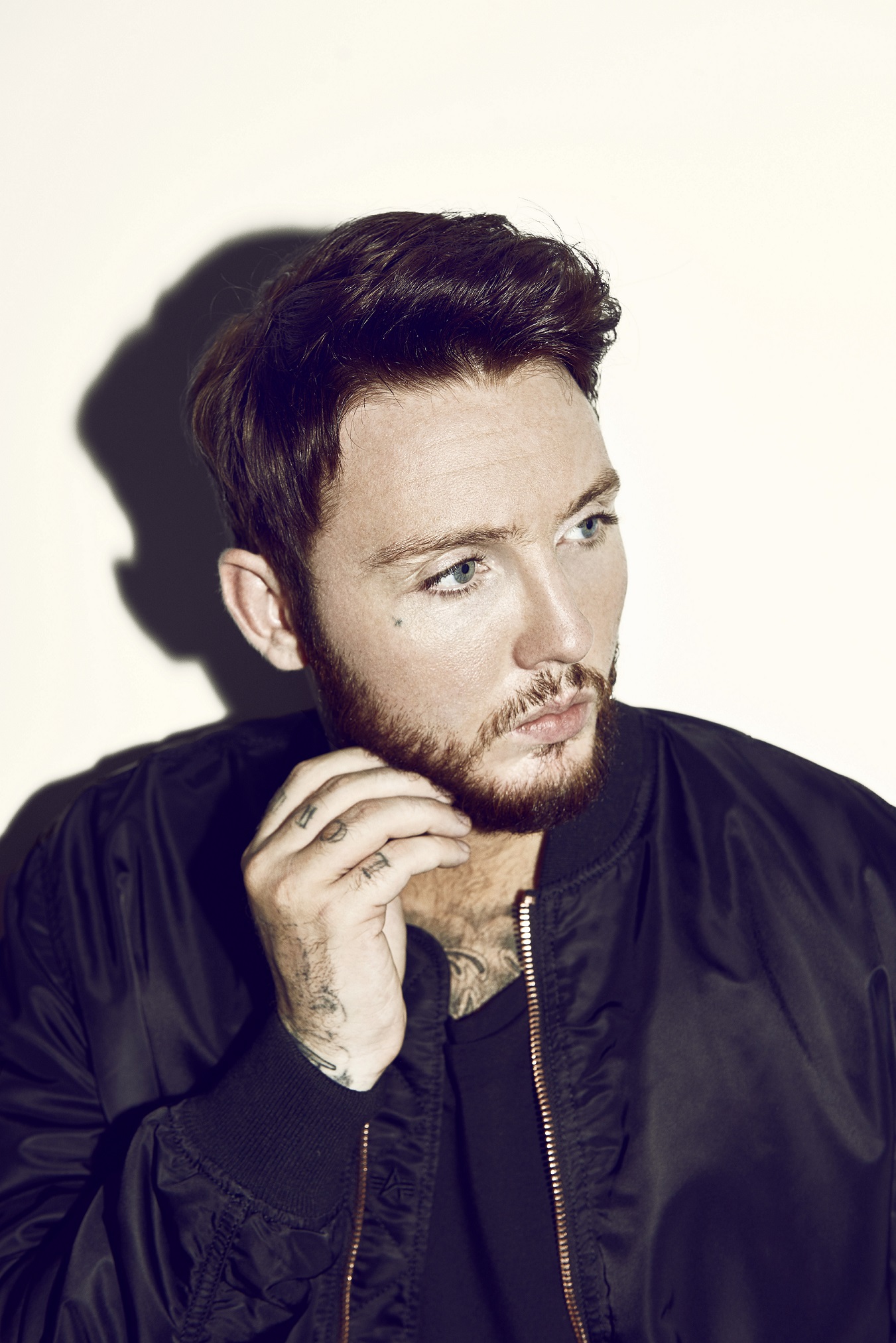
Do you have a favorite song on the album?
James Arthur: I do. I love them all for different reasons, but if I had to show somebody that I’d met for the first time a track off the album to try and sell me to them, I’d probably play “Train Wreck” because I think vocally, it’s the most impressive. I think for that reason, because it feels heartfelt… You know, I believe it, and I feel like that’s quite important – if I believe it, then other people will feel it.
Is that what you look for in your music – that kind of sincerity?
James Arthur: Quite often I’ll listen back to a song I’ve written and be like, “That’s not you; I don’t believe you.” Whereas that one, it really was like a moment in time that really did correlate with what I was going through. It feels like the strongest vocal performance and the most honest track.
We’re about to be six months out from the record’s release. Do you still identify with the songs and with this music?
James Arthur: I do. There’s a few tracks that didn’t make the album, that I think would’ve been great to have on the album. I’d probably still be super-interested in listening to it; like, there’s a song I wrote called, “Jimi Jimi,” which I personally loved, but no one really went that crazy for, but I loved it. It’s like a Jimi Hendrix vibe, really cool. But yeah, I love this way more than the first album. I’ve never listened to the first album! I feel like it was so contrived; there’s a few tracks on it that I really identify with, but the rest of it… I can just remember the stress of everybody putting pressure on me to strike that balance between being an X Factor winner and an artist. I feel weird about that time; I wasn’t really very well. I wasn’t really in the right mind, and it’s a bit of a trigger when I listen to it – not to say it’s not good; I’m proud of it: We made an album that did strike a balance, and there are a few tracks off it that are pretty cool. But this album, it feels like one million percent straight from me. It feels like my real first album! It was conscious.
Do you feel like, since October, you’ve been pushed back closer to “the edge”?
James Arthur: I’m definitely a safe distance, well away from it. I have moments, you know, like everyone; my job’s quite taxing. I’ve got my purpose back: I’m on the right path, I think, so… I’m happy.
Now that you’re “back from the edge,” what are some other stories, parts of your life and ideas that you’d like to explore through song?
James Arthur: You know, “Sober” is the only real sexy track on the album – the only real track that when I play, like, I’m like, this one’s for the ladies; the only track that you can maybe play while you’re romancing your missus. I think I’m decent at that – I’m alright at that! I’ve been listening to a lot of Usher, randomly. I watched Usher do “Georgia On My Mind,” and f*ck, Usher is absolutely amazing. He’s sort of the full package, in terms of an R&B singer. I think he really does well at making [sex music]… so I’d like to maybe do a bit more romantic music, explore a bit more of the R&B, grittier lyrics.
Music that could not have gone on this album.
James Arthur: A bit more extroverted, more confident, I think. I love hip-hop; I think it’s weird for people to hear a white boy from the Northeast rapping. It’s like Marmite – you either love it or you hate it. I kind of don’t care; I love doing it, so I want to do more of that. I had a few bits on this record, and I think they’re some of the best moments, personally, but I don’t know… I think the label and management are a bit intimidated by it, because I think rapping is where you have to be your most honest, and most direct. There’s more creative license, and it’s just fun!
— —
Atwood Magazine wishes James Arthur the best in his continuing career.
:: Stream / Purchase Back from the Edge here ::
— — — —
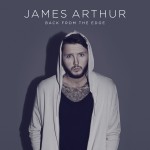
Connect with James Arthur on
Facebook, Twitter, Instagram
Discover more new music on Atwood’s Picks
cover © Columbia Records
Back from the Edge
an album by James Arthur

